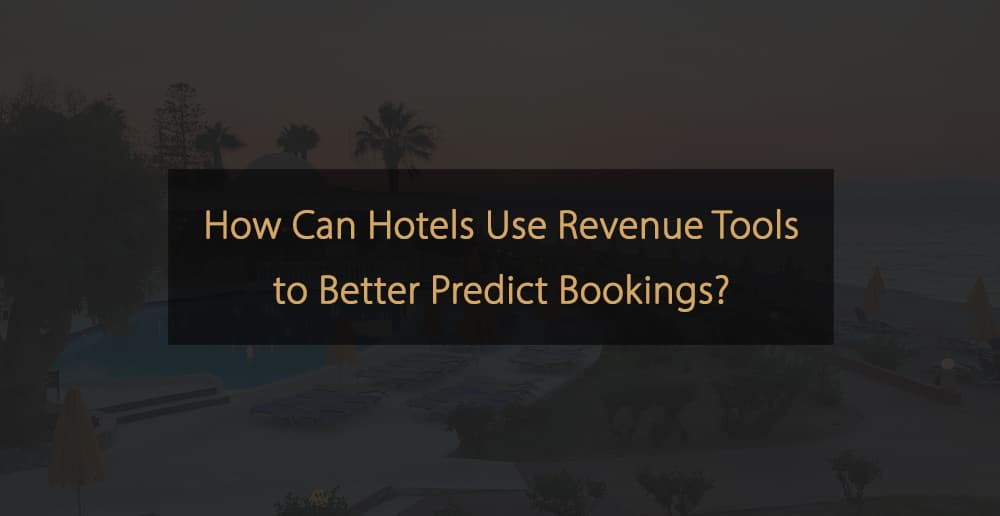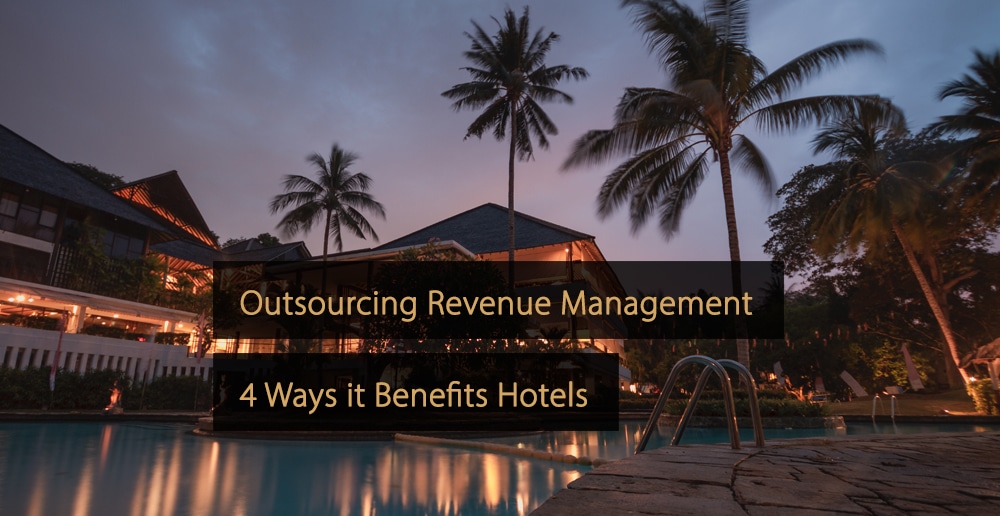Question for Our Revenue Management Expert Panel:
With so much technology available, how does human judgement factor into making revenue management decisions? Should the RMS ever be overruled by human judgement? (Question by Fabian Bartnick)
Industry Expert Panel
Our Industry Expert Panel exists out of professionals within the hospitality & travel Industry. They have comprehensive and detailed knowledge, experience in practice or management and are forward-thinking. They are answering questions about the state of the industry. They share their insights on topics like revenue management, marketing, operations, technology and discuss the latest trends.
Our Revenue Management Expert Panel
- Fabian Bartnick – Founder, Infinito
- Dr. Betsy Stringam-Bender – Professor of Hotels & Resorts, New Mexico State University
- Pablo Torres – Hotel Consultant, TSA Solutions
- Tanya Hadwick – Group Revenue & Yield Leader, SunSwept Resorts
- Nikolas Hall – Owner, N. Hall Consulting
- Diego Fernández Pérez De Ponga – Director of Revenue Management, Palladium Hotel Group
- Krunal Shah – Director of Revenue Management, The Biltmore Mayfair, LXR Hotels & Resorts
- Daniel Feitosa – Revenue Management Specialist
- Silvia Cantarella – Revenue Management Consultant, Revenue Acrobats
- Heiko Rieder – Vice President Business Development, Hirmer Hospitality and Travel Charme Hotels
- Massimiliano Terzulli – Revenue Management Consultant, Franco Grasso Revenue Team
- Daphne Beers – Owner, Your-Q Hospitality Academy
- Ask Our Panel a Question
- Join Our Expert Panel
“Using AI and technology without oversight is gambling. At present RMS vendors blame users for overriding and at the same time blame them for not overriding “when they should” – so the user is always the dumb one in that equation. And we need to stop pretending that RMS are the holy grail, they are built by humans, therefore flawed and it doesn’t matter which RMS you take – they will get it wrong. Not because they are bad, but because they only see the data they are given.
We need to promote an approach where the user is taken into account in the optimization process. This is the biggest opportunity for us when staffing is the new luxury: Human optimization.”
“Human judgement should always be part of the revenue management process. Most revenue management technology uses historical data and trends in the market. History does not always repeat itself, and trends change. So management input is vital. Some technologies allow management to input the human judgement factor into the systems, which allows for predictions that are more accurate, but all technology needs management oversight and management processes.
There are many examples or scenarios where human judgement is important, but perhaps the biggest one is what we are experiencing currently. The Covid-19 pandemic changed how people travel, and not just at the height of the pandemic. Demand patterns today are not the same as they were pre-Covid, for the past few years, or in many cases even the past few months. Even if your occupancy levels have returned to pre-pandemic levels, who is travelling, and how they are travelling is different. In most cases, consumers are booking later or in a shorter time window pre-arrival. While some of these changes can be predicted by revenue technologies, some require human input.
Another example is local conditions. For instance, you may have a popular concert artist announce an event at a venue near you, or a local sports team host an unexpected playoff game, etc. By the time technology catches the increase in demand, you will have lost a lot of additional revenue.
It is vital for human management to look at the information from technology, but to apply local conditions. Technology should augment, not replace, human judgement. There are some things that technology can do better than people, but there are also things that people can do better than technology. In most cases, the best decisions are a combination of good managers using good technology tools.”
“Even though technology is catching up very quickly, and starting to (in some cases) replicate what a human can do, in most cases it’s still not that fast. An example would be a sudden increase in demand for a certain date due to the announcement of a major event happening. There are RMS that update rates two, three, or four times a day. Others, just once. But if the demand is very fast, it might be that the pick-up is faster than your software. That might mean that by the time your RMS wants to react, inventory is filled and there was no time to do yielding.
Another example can be large group bookings. Just because your inventory is half booked it does not mean the demand is there. It might be just a one-off, and pick-up may still be slow. However, in many cases, your RMS might “think” that pace has surged and therefore increase rates. That move might mean pick-up stops as the demand is not large enough to accept that price increase.”
“RMS enhances the role and enables faster data processing and analysis, however in reality, with the changing factors we see in this industry, I believe it’s a tool to enable the RM to interpret the data, add their insights to make predictions and adjustments based on all the different data sources and then set the strategy to support the goals. Just thinking about the first question – how would an RMS be able to react the instant a massive concert was announced in the area until it started to see the demand, which in some cases could be too late?”
“The technological developments for Revenue Management have come a long way and allow for both analysis & scenario simulation. However human nature entails that we still work with that “gut feeling”.
My reading list over the past few months included “Predictably Irrational – The Hidden Forces That Shape Our Decisions” by Dan Ariely, which challenges readers’ assumptions about making decisions based on rational thought. Refuting the common assumption that we behave in fundamentally rational ways. Our behaviours are neither random nor senseless. They’re systematic and predictable—making us predictably irrational.
That said, systems are only as good as the data they are provided with, and errors can occur. Be this a general error based on data input or incorrect data based on system set-up. Unless you are aligned with your numbers, you will not be able to properly evaluate the suggestions that are laid out for you or identify incorrect suggestions from an RMS, and hence conduct overrules.
An example I recently saw, was a supplement that for some odd reason was contributing to room revenue – and therefore the foundation for pricing. A manual data input error entailed an extra €250.000 in revenue, which was not discovered until the arrival date. So a great month went to being a not-so-great month. Knowing your numbers should have entailed that the RM would have caught this anomaly and should have done a manual override, and begun investigating.”
“I would love to start speaking about the future of the Revenue Management position because I think we will disappear if we don’t assume a more strategic role in the organization, so if we let all the processes be taken care of by the machines, we will face that risk of disappearing. From my point of view, the sky is into the total Revenue where we need to oversee not only room revenue income but also other revenues and costs of distribution. If you mix everything in your strategy, you will be adding value to your role right now, and this value is really complicated to be done with a piece of software.”
“In recent years, the use of technology in revenue management has increased steeply. Decision-making has accelerated and so has the technology powered by AI. After so many years of innovation, RMS tools need to be trusted to optimize revenues but human judgement remains the most important aspect to account for external factors that affect the overall decision-making of the system.
Data going in needs to be accurate for correct output. This is where human judgement comes into play. As powerful as Artificial Intelligence is, the human brain understands the circumstance and objectives required for those decisions to be made. Normally there are scenarios where special events need to be entered into the RMS for accurate output by stating if your forecast is impacted or not.”
“The human RM needs to see the recommendations and validate them with business information. The individual is always needed to discuss the opportunities the RMS is showing to other Departments and validate them with the main objectives of the company. The person has to add value to the recommendations the system shows.
For example: During Covid, airline RMS set very low prices due to the lack of demand. The same can happen in a group wash or a different event that is coming to the city. Also, when the hotel creates a new promotional strategy to get different results. An RMS is not able to do all of the jobs.”
“There are cases when an unexpected change in demand happens, and the revenue manager must provide the RMS with some additional information in order for it to work properly. These cases must be limited to exceptional events such as a huge event date shift (demand override), big group cancellation, higher than expected demand due to a layover, last minute overbooking overflow. In terms of restrictions, there might be specific events where the property must be very tailor-made in its strategy when it comes to minimum stay restrictions.
This is typical of high-demand periods such as New Year’s Eve to name one. I see that in the luxury tier where we have to deal with a wide range of peculiar room types; it is quite a frequent scenario to override the minimum stay on a specific room class in order to optimise the stay pattern and avoid occupancy gaps, especially when no room type overbooking is in place.”
“The 100% reliable RMS-demand forecast does not exist. Consequently, human judgement plays an essential role. Demand forecasting tools are always based on data and the forecast can only be as good as the data they are fed with. Depending on the origin of the data it is sometimes not clear where it’s from and how it reacts to certain changes in booking pace.
Naturally once investing in RMS software, the aim must be to automate processes and have certain decisions flow as autopilot into the distribution channels. Overrides are recommended to be considered:
a.) when the general accuracy of the demand forecast is lower than 90% 30 or more days out, again depending on the usual booking patterns of the property in question and
b.) for larger one-off events (citywide or in the hotels closest competitive set) when there is no historical data available for the algorithm to look at.”
“The pandemic has shown that sometimes there are exceptional and unforeseen situations that require overriding RMS decisions made based on historical or future data. But the pandemic is only the most obvious example. Just think of wars, political and social crises, natural disasters, and energy crises. Everything can change in a short time, days or weeks.
And paradoxically humans in this case have a superior ability than the machine to read, decipher and react to a completely new situation, while the machine (learning) gives its best in the face of historical or future consolidated patterns repeated over time, and in this context, it is certainly more efficient than humans. But the machine works best only if there is a human behind it who can define the right sales, communication and distribution strategy and what data to consider so that it makes the best possible pricing decisions.
If the strategy is wrong, inevitably the machine’s decisions will also be wrong, and the outcome will be poor. For this reason, the combination of humans (strategy, creativity, interpretation of unexpected and unpredictable factors) and machines (repetitiveness, speed, efficiency, analysis of huge amounts of data) remains the best possible solution.”
“If you need to override and you do not trust the systems you work with, are you then following opinions and emotions or are you first going to check the facts? What is the system missing? If it is missing? Instead of adjusting the system, I would challenge first my own thinking, logic and emotions as these are manipulative (triggered by a thought or experience) and most of the time are not based on facts.
If it is a fact, like an event or other high impact which the system does not see, then feed the system with the changing demand and let it learn from there. I would always ask for feedback from the account manager to see what impact it has when you manually override. It can be that you break the algorithm for a short-term win and therefore will lose big time in the long run.
Educate yourself on how the system works, and where the pricing and recommendations are based on. Systems take so many factors into consideration that you as a human are not capable of.”
Ask a Question & Join Our Expert Panel
Would you like a question to be answered by our Industry Expert Panel? Or would you like to join our community of experts and share your experience, insights, and knowledge with fellow industry professionals? Via the buttons below you can submit a question or submit a request to become part of our expert panel.
More Tips to Grow Your Business
Revfine.com is the leading knowledge platform for the hospitality and travel industry. Professionals use our insights, strategies, and actionable tips to get inspired, optimize revenue, innovate processes, and improve customer experience.Explore expert advice on management, marketing, revenue management, operations, software, and technology in our dedicated Hotel, Hospitality, and Travel & Tourism categories.



















Leave A Comment